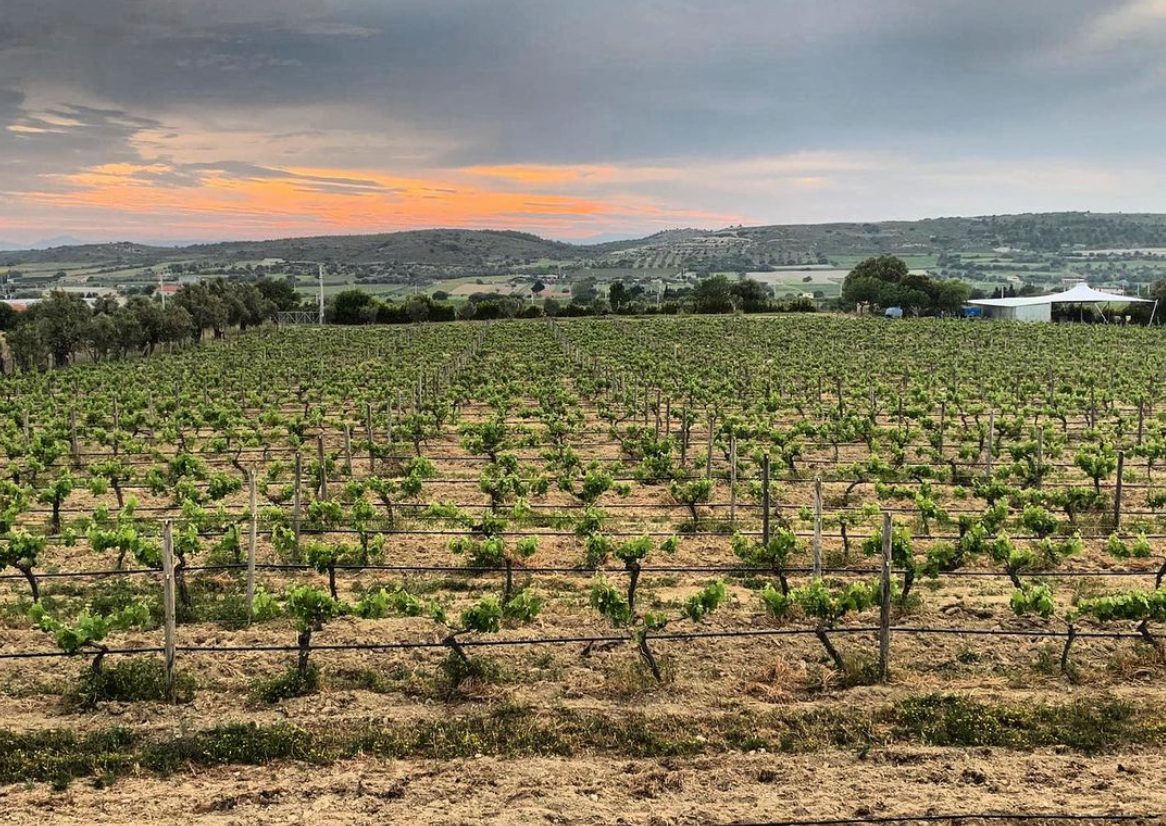
Buradan Winery is located in Çeşme, a coastal town located in the western part of Turkey, famous for its beaches, thermal springs, and historical sites. While Buradan is a new winery the region has a history of wine production that dates back to ancient times.The area was inhabited by the ancient Greeks, who introduced wine cultivation to the region. The vineyards of Çeşme were known for their high-quality grapes and wine production which were exported to other parts of the Mediterranean.
During the Ottoman period, wine production in Çeşme continued, but it was limited to the production of sweet wines, which were popular among the ruling class.
In the early 20th century, wine production in Çeşme suffered a setback due to the phylloxera epidemic, which destroyed many vineyards. However, in the 1990s, a group of local wine enthusiasts began to revive the tradition of winemaking in Çeşme and today the region is once again known for its high-quality wines. Çeşme is now home to several boutique wineries that produce award-winning wines.
Grape Collective talks to Buradan Winery founder Turgay Gümüş about the revival of the Turkish wine industry, the unique terroir of Çeşme and his commitment to organic viticulture.
Grape Collective: Tell us about the history of the winery.
Turgay Gümüş: We're on the Aegean coast of Turkey, one of the most western points in Turkey, mainland Turkey. And the viticulture here dates back to the Greek civilization. We've had viticulture here for many, many years. And when there's viticulture, there's also obviously winemaking.
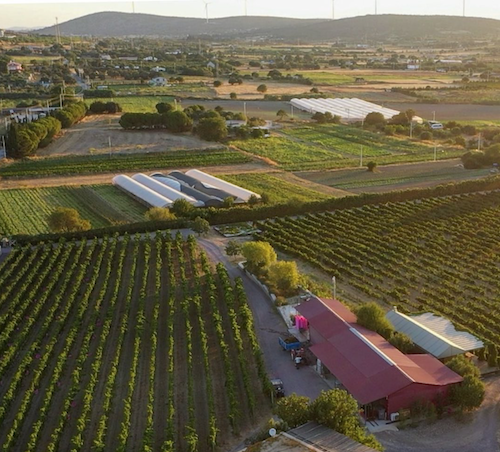 This is a very old, ancient winemaking area. Although our project is very new. We started planting our vines back in 2006 and started producing wine in 2015 so we're in our seventh vintage this year. So it's pretty new as far as we're concerned. But the area from a viticulture point of view is pretty ancient.
This is a very old, ancient winemaking area. Although our project is very new. We started planting our vines back in 2006 and started producing wine in 2015 so we're in our seventh vintage this year. So it's pretty new as far as we're concerned. But the area from a viticulture point of view is pretty ancient.
Talk a little bit about the nonprofit that you established.
Everybody is asking me this question, "How did you get into wine? How did you get into the wine world?" It doesn't come from a family. It's not an old story. And it doesn't really come from my great passion for winemaking. It is contrary to many investments in wine. Mine doesn't come from a wine perspective. It basically comes from the fact that I have a passion for nonprofit projects.
I've always had this. And when the idea of producing wine here came up, I said to myself, I will do this only if I can turn it into a nonprofit project. And that is what it is right now. There's a manifest in this whole investment that all of the earnings will go in a fund which will support education of women, women in the wine industry.
So as an investor, no, I don't take a penny out of this project. Everything goes into education for women, higher education for women in the wine industry. And today we have a student studying viticulture and vineyard management as a masters project in Italy, for example. So the whole project is nonprofit NGO work really.
And with regards to supporting women, what are some of the problems you're trying to address?
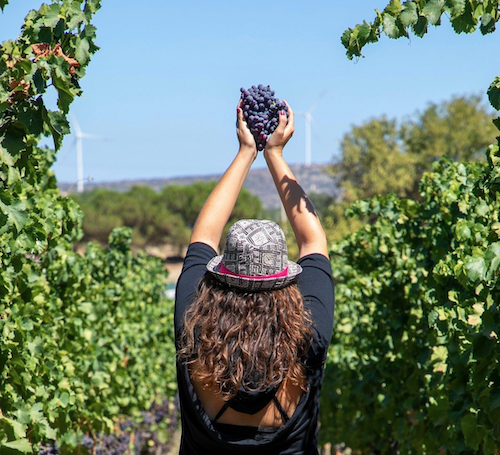 The problem we're trying to address with the nonprofit is basically the gender inequality. I think this is a worldwide issue anyway, but especially in Turkey. With the traditions in Turkey, there is a serious gender inequality against women. So therefore with this project we're trying to address this by supporting women's roles in wine, viticulture and the wine industry.
The problem we're trying to address with the nonprofit is basically the gender inequality. I think this is a worldwide issue anyway, but especially in Turkey. With the traditions in Turkey, there is a serious gender inequality against women. So therefore with this project we're trying to address this by supporting women's roles in wine, viticulture and the wine industry.
Normally you would see women traditionally working in the fields doing the lowest jobs. But what we want to do is get women into the highest possible jobs, high-value jobs like enology, like sommeliers, like wine management. And that's what we're trying to do. We're focusing on women with a university degree and getting them into higher education master's programs or doctorate programs worldwide in different universities around the world or in Turkey.
And getting them into those programs and supporting their whole life there. It's a full scholarship program. We provide them even with pocket money wherever they are in the world.
For people who don't know where Turkey is as a country, geographically frame Turkey as an entity.
It's in a landmass called Asia Minor. It's the most western point of the Asian continent. It's where Asia meets Europe and it sits on the eastern Mediterranean, surrounded by the Mediterranean Sea, the Aegean Sea on the west and the Black Sea in the north.
So we are right now literally about 500 meters from the Aegean coast. This is the coast between the sea, between Turkey and Greece. So it's the cradle of a very old civilization going back to the Hittites to Greek civilization and all the ancient civilizations in between. We are right now across from the Greek islands which are also quite famous in their viticulture and wine world and wine production. I would say we're on the Aegean region of the Turkish landmass right now.
Talk a little bit about Turkey as a country historically, it's an important ancient civilization many people don't know about.
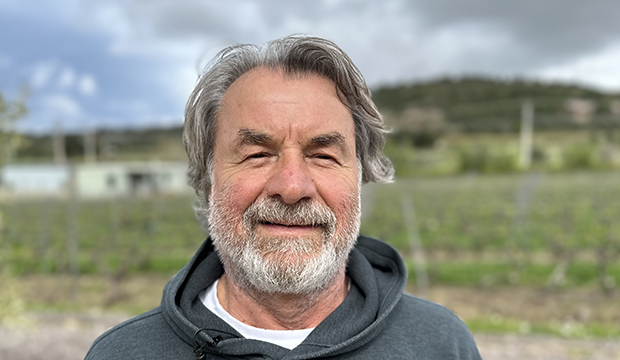 I mean, historically, Turkey is interesting and an interesting location. It's one of the passages of many, many civilizations. It's very close to Mesopotamia. It's very close to the old Persian civilization. Again, it's in the vicinity of the Egyptian civilization. And all the Greek civilizations which have always over the years been a part of Turkey.
I mean, historically, Turkey is interesting and an interesting location. It's one of the passages of many, many civilizations. It's very close to Mesopotamia. It's very close to the old Persian civilization. Again, it's in the vicinity of the Egyptian civilization. And all the Greek civilizations which have always over the years been a part of Turkey.
So Turkey is a very old ancient civilization area. The Turks right now came from Asia. Basically it was the Asian immigration migrations, really from Asia. And the Turks came here about a century and a thousand years ago. And when the Turks settled here, they started forming new empires. And one of the famous ones is the Ottoman Empire. It extended, I think, if I'm not mistaken, something like 20 million square kilometers. It was a huge civilization. And then after the Ottomans, what we have today is the Republic of Turkey. So there are some archeological sites in Turkey that go back 12,000 years. So it is probably one of the first civilizations of the world, in Anatolia, in Turkey right now.
Of course, it carried through the years many, many winemaking civilizations, starting from the Hittites and the Greeks, Armenians, Georgians, all of those people made wine here. So there are different varietals. There are very ancient varietals, ancient methods, ancient wineries. I mean, although it's not very well known in the Western world, it's one of the cradles of winemaking civilization, really. So I would say one of the major things that this land has brought to the world is actually viticulture and wine, along with olive oil, figs and all of that good stuff that we enjoy today.
Explain what Anatolia is.
Anatolia geographically is another name for Asia Minor. It is really the most western part of Asia which connects Asia and Europe through the Bosphorus Strait. So it is really the landmass right before getting into Europe from Asia. So this is Anatolia as a whole. It's a small landmass, probably the size of Texas, but it is the cradle of many civilizations.
It's where Tigris and Euphrates, the old civilization, rivers were born which created eventually Mesopotamia, where civilization started, where Babylon started. And it's right next to the Middle East, Jerusalem, the Egyptians, old lands of the Middle East. They're right next to Anatolia. So Anatolia really is a very small landmass, but it's in the middle of ancient civilization and on the western side there is, of course, the Greek civilization, which I think is very important.
So Anatolia is made up of various civilizations that over the years influenced the winemaking a lot, starting with Hittites, with Egyptians, with Armenians, with Iranians, Greeks. So it's really this landmass east of Europe and west of Asia, which really is the cradle of one of the civilizations in the world.
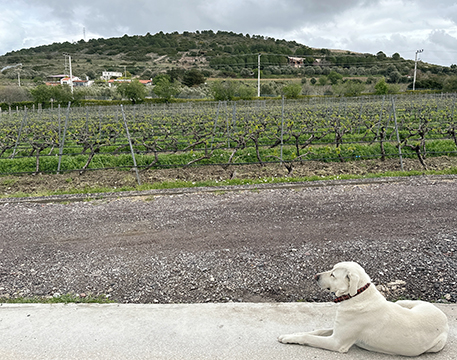 Talk a little bit about the origins of winemaking as it relates to Anatolia.
Talk a little bit about the origins of winemaking as it relates to Anatolia.
The history of wine in this part of the world. I'm not a grape expert, I should say, but I travel a lot and I travel to some of the countries east of Turkey, which are also centers of winemaking, Georgia and Armenia being two very, very important historic winemaking areas. It's in contention. Which one is first, which one is second, but it's obvious that they're one of the oldest civilizations.
So winemaking here goes back many, many years. But as with everything in history, it has its ups and it has its downs. I would say it started with the Hittites and started really going up with the Greeks, the Armenians. They had the habit of producing wine here even during the Ottoman Empire, which was essentially Islamic.
Armenians were producing wine in Turkey, wine was produced in Turkey, widely consumed in Istanbul. Even in the palace, it will be contested, but even in the palace it was consumed. So wine was a big part of the culture of this land. But then afterwards, due to religious reasons, due to social reasons, it dropped. It dropped significantly.
At the beginning or middle of the last century, all the wine production in Turkey became more monopolized. So it was government production in Turkey only. So that kind of killed the quality and killed the history a little bit. But things changed over time. A new millennium started with new projects. There's a lot of new wineries like ours coming up, so it's a part of the world wine history, ups and downs, but definitely a good mark in the history of wine in the world, I would say.
And it has to be taken into account in the future. I know that a lot of the developed markets in the Western world, they're looking for new alternatives, they're looking for new stories, they're looking for new varietals, they're looking for ancient methods. And those are usually coming from here, which I'm very proud to say.
Talk a little bit about the ancient varietals that you have here.
I'm not an expert on the old varietals, but definitely this landmass has very, very old varietals that have perfected themselves. The indigenous varietals of Turkey go back to the old history of winemaking and viticulture in this area. Some of them have perfected themselves over thousands of years of harsh weather conditions. In Central Asia right now we have four main varietals. Then there are many, many smaller varieties in smaller areas.
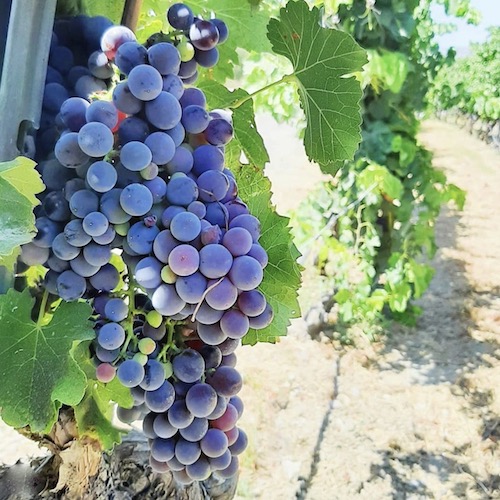 So these all survive very harsh conditions during winters of Central Anatolia, when it can go down to minus ten or 15 Celsius, and they have perfected themselves over the years. Today the new wineries are producing excellent wines and in different styles from these very, very old ancient varieties. And then you have coastal varietals in this exact location where we are, for example, there are some unique coastal varietals.
So these all survive very harsh conditions during winters of Central Anatolia, when it can go down to minus ten or 15 Celsius, and they have perfected themselves over the years. Today the new wineries are producing excellent wines and in different styles from these very, very old ancient varieties. And then you have coastal varietals in this exact location where we are, for example, there are some unique coastal varietals.
So I think it's very exciting that you will have these in addition to the worldwide international varietals that everybody knows and everybody drinks these different international varietals from different terroirs with different characteristics. And then you have a huge potential of these new varietals coming out from this part of the world, which I think is going to dominate the wine industry in the next years.
And today when you go to high-end restaurants in New York, London, Europe, you get all kinds of international varietals from international winemaking areas. You get Tuscany, Rioja, you get Ribera del Duero, all kinds of different, very well-made wines. But you also get, especially in smaller restaurants where chefs are very much involved, you get different interesting varietals, you get wines from Lebanon, you get wines from Turkey, you get wines from Georgia, Armenia, and people are interested.
The chefs are interested in pairing these with their own food. They want their customers to try different varietals. And I think this is very exciting. And the excitement in the wine industry here is producing wine out of these new varietals. I think that is really the future for this part of the world and for the food, for the Western world to be able to consume these new varietals which are very, very far away from them, which they don't know anything about. So the market will be seeing the introduction of new, exciting varietals from this part of the world.
Talk a little bit about the different terroirs that you have in Turkey.
I think if we talk about different terroirs in Turkey I think that's also almost as interesting as the different varietals which exist. Turkey is made up of two parts. There's the European part, which is very small, and it's an extension of the Balkans. And then you have the Bosporus Waterway in between, which is the end of Europe, and then you have Asia starting, which is Anatolia.
The European part of Turkey is called Thrace. Going back to the old Greek civilization this is again a viticulture and winemaking area. Today, some of the best wines being exported from Turkey come from that terroir. It's the extension of the Balkans. And then you go to mainland Turkey, you have a number of exciting terroirs. You have the area around Aegean, which is where we are right now.
And even in itself, Aegean has the terroir of Denizli, which is much more mountainous, which is much higher. You have all that out there which is next to the sea, but also hilly. And then you have Çeşme, which is totally flat. And what makes this an unusual place for viticulture is the prevailing winds.
Here we have a very strong prevailing wind from the north. So they really help to prevent fungus, the diseases of the land here, making it possible to farm grapes here.
And then you have in Turkey a central terroir which consists of the area around Ankara, and this is a very, very interesting, terroir. In fact, the place where the Hittites first started producing wine. And then you have southeast Turkey around Diyarbakir, Mardin, this is the old ancient area. It is where Christians, every civilization started producing wine around Mardin, around Diyarbakir.
So you have really a number of different terroirs in Turkey, which produce totally different characteristics of wine from different varietals.
And maybe just talk specifically about the terroir here in Çeşme.
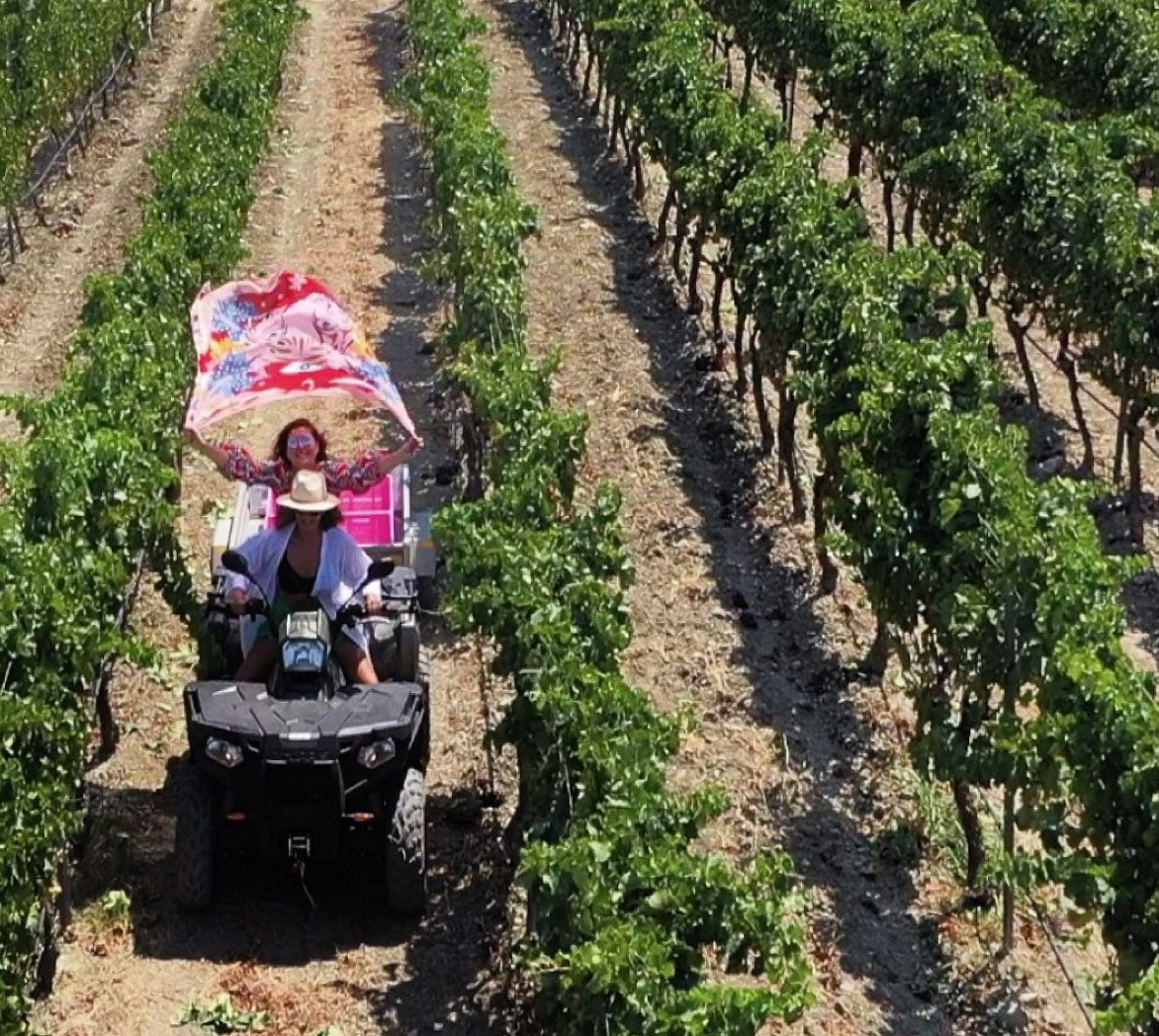 If we talk specifically about terroir of Çeşme, I think it's very special. It's an unusual place to produce grapes where 500 meters from the sea, we're totally flat. It's hot. And the difference between night and day temperature is not very high. So how is it possible that you can produce wine here?
If we talk specifically about terroir of Çeşme, I think it's very special. It's an unusual place to produce grapes where 500 meters from the sea, we're totally flat. It's hot. And the difference between night and day temperature is not very high. So how is it possible that you can produce wine here?
I think the soil, the clay soil here is very important. Even some of the international varietals we grow here. Well, we make wine out of them. The character is totally different. So the soil is a big factor here. And the second big factor here is the winds. This is the wind capital of Turkey.
So you have all the wind sports around this area at the beach clubs. And the wind here helps viticulture a lot. It clears the vineyards from the fungus, from the diseases. And it is why we're able to do organic farming here. The vineyards are organic certified. And one of the main reasons we do this is this characteristic of the wind which prevails here.
Talk about the rosé you produce.
We're a very small winery. I would call it a micro-boutique. It's really extremely small. We we produce about 5,500 to 6,000 bottles a year and 80% of the production is a rosé. So it is very untraditional wine production. I don't know any other winery which went into rosé at their first vintage. But that's what we wanted to do because the special thing about this area is it's a beach area. This is a resort where people come and spend their summers. So rosé consumption, rosé is very popular here. And also worldwide consumption is increasing tremendously. So we decided to start with a rosé. We had the wine for it, which is a Grenache. So it makes an excellent rosé. This is how we started with it.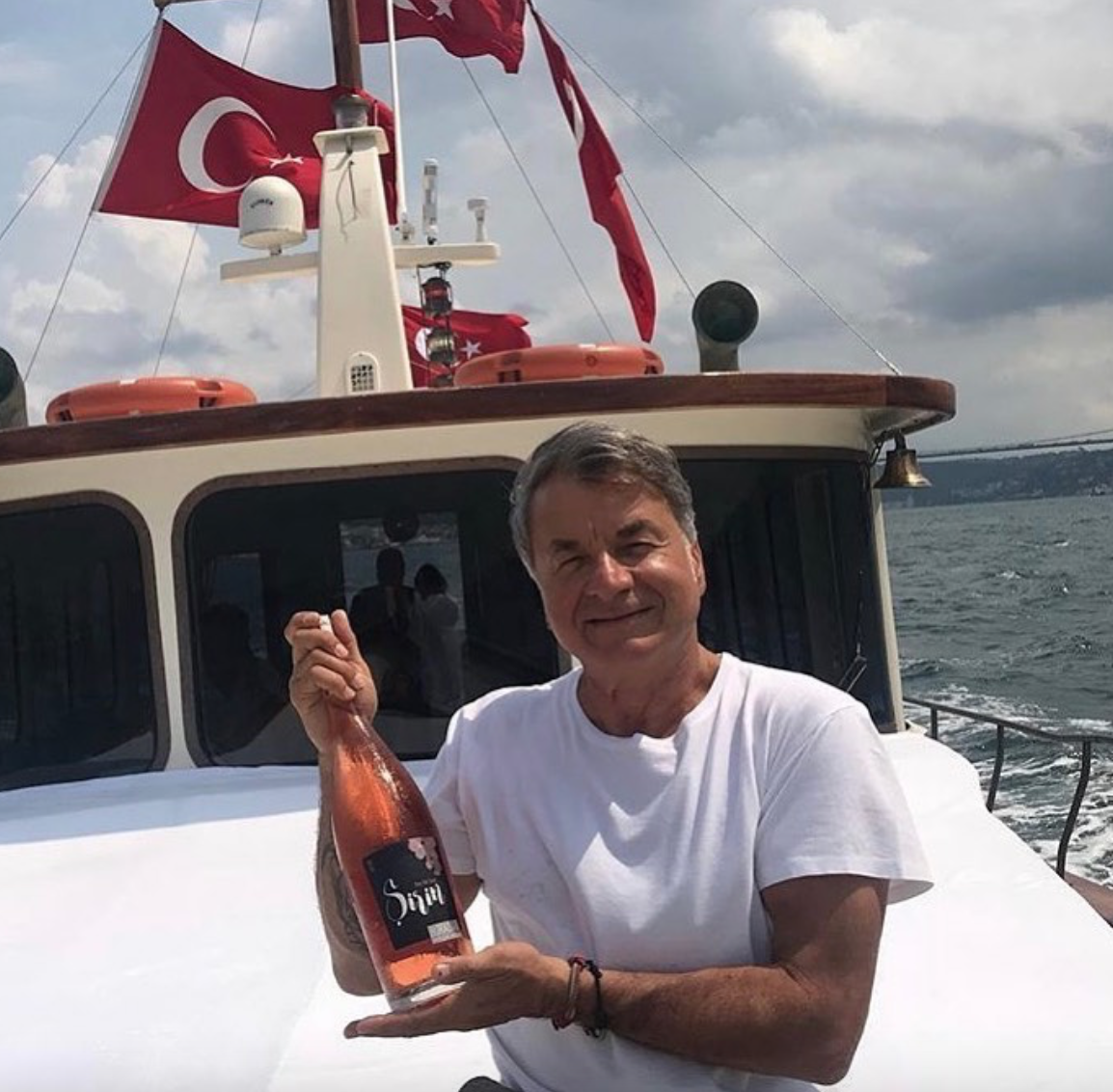
The relationship between wine and Turkish society is again an interesting one.
Turkey is a secular state, so normally the government is not ruled by religious law. Turkey as the Republic of Turkey has its own civil laws and civil contact and religion.
Religious laws are not applied. So that applies to all the laws that also connect with the wine industry in Turkey. But over the years, the general population in Turkey has an up and down and regional relationship with wine consumption. The government today has very strict laws on alcohol production, alcohol distribution and alcohol consumption.
To an extent this is okay, but the problem is it puts a lot of pressure on especially small and new wineries which are coming up because we don't know exactly what is right and what is wrong in the law. A lot of the law is open to interpretations, so we kind of try to feel our way around the law, asking a lot of questions, getting information from people. If this is right or wrong. So the laws themselves are very much vague in Turkey. And there is a disparity between big producers and small producers in terms of who can get by with what. And I think this is one of the greatest issues in Turkey, and it puts a lot of pressure on the small producers as a community.
The society in Turkey, you have people who don't drink alcohol, mostly for religious reasons, but also for other reasons, health reasons, whatever they choose. But then you have a part of the community which is an alcohol consumer. Wine consumption in Turkey has increased over the years. It's increasing. It's not increasing rapidly, but it's increasing over the years because new varieties are coming in, new producers are coming in, new qualities are coming in.
So wine and availability of wine are getting much more widespread in Turkey. And although most of the population in Turkey is Muslim, it is not an Islamic country. So I would say the Islamic laws do not apply in the case of wine in Turkey. But again, that doesn't say there aren't strict regulations. There are very, very strict and vague regulations being applied in Turkey.
Can you explain the whole concept of the secular state and the creation of the Republic of Turkey?
The creation of a secular state and Ataturk in Turkey is probably one of the best things to have happened in the history of this land. The modern Turkish Republic was formed in the 1920s by Mustafa Kemal Ataturk. His vision at that time was to create a society which was different than during the Ottoman times.
It was vastly different but over the years the Ottomans did fantastic work. But towards the end of the Ottoman period, things didn't work out very, very well. Ataturk wanted to form a modern society. So he made a lot of changes in the social structure in Turkey. Revolutionized the alphabet, the dress code, civil codes, laws and everything.
And on top of this, he created this secular state separating religion, which was very strong and which has always been very strong. It has always been very strongly implemented in this land in Mesopotamia and in the Middle East. Religion is a very strong part of the society.
So basically he wanted to create a society which freed you from religious restrictions. Religion is applied based on one's choice to apply it or not in their lives. So Turkey has had this for 100 years, though it's the 100th anniversary this year. So these 100 years of the modern Turkish journey has always been a secular state separating religion and government and all the applications of laws on the country.
Explain the recent proliferation of small independent wineries in Turkey.
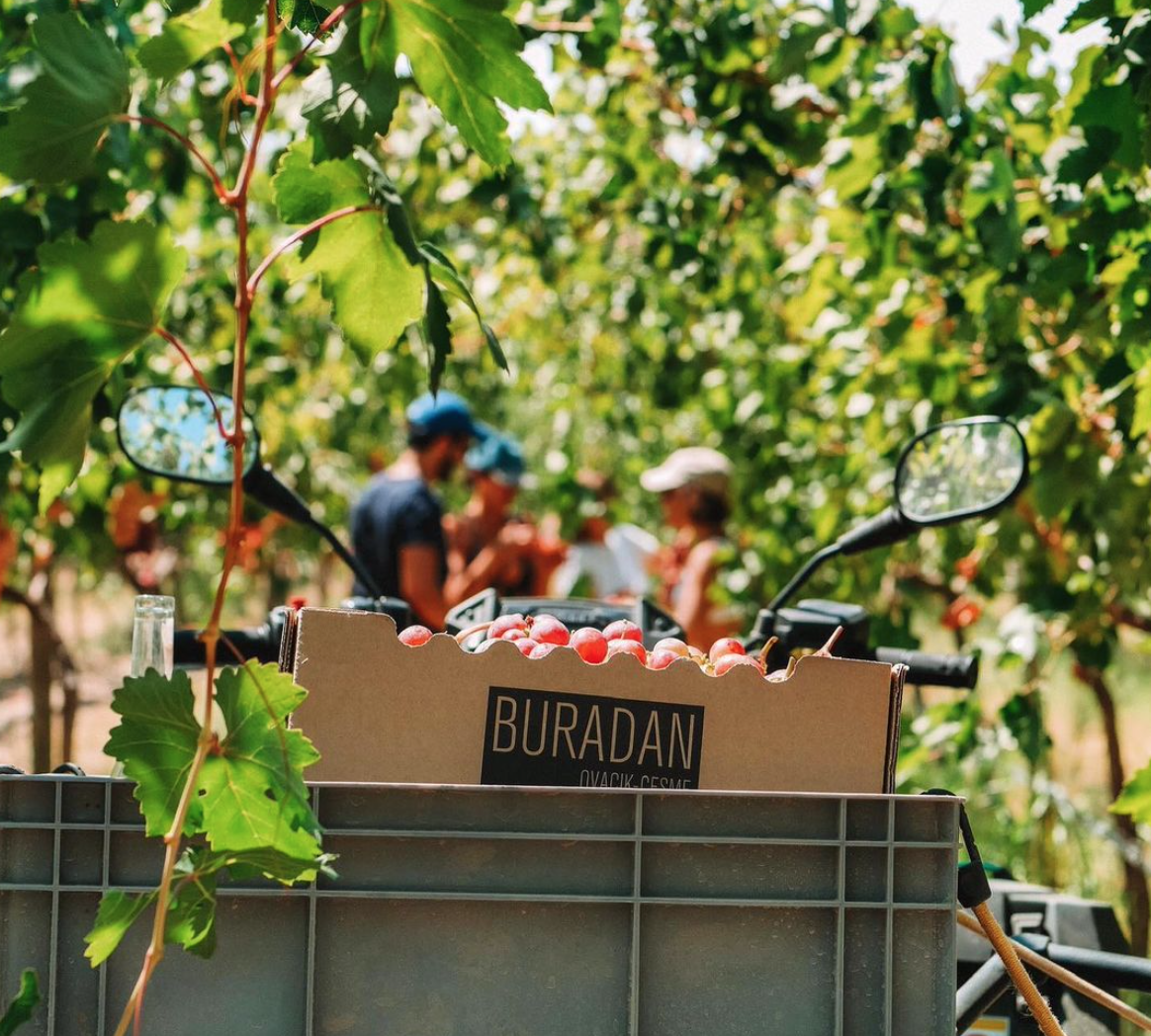 The small independent wineries in Turkey came out after the end of monopolization of alcohol production in Turkey. When the Turkish Republic was first formed, a lot of the industries were owned by the government. They were started by the government because government was the only source of economic investment at the time. So alcohol production was also monopolized until the end of the '80s, beginning of the '90s.
The small independent wineries in Turkey came out after the end of monopolization of alcohol production in Turkey. When the Turkish Republic was first formed, a lot of the industries were owned by the government. They were started by the government because government was the only source of economic investment at the time. So alcohol production was also monopolized until the end of the '80s, beginning of the '90s.
And in the last two decades I would say small wineries started coming up. People like myself who had business in other industries would come from other backgrounds. They started becoming interested in investing in wine, not only for the love of wine, but love of many things that are related to wine. The viticulture, the old ancestral production, the social projects related to wine like we are doing here. So for many different reasons, people started investing in small wineries like ours, small vineyards like ours, and they became very successful because they came into the industry an with an outside vision with their own experiences, mostly in business. And they started implementing this.
And I think this was a leap in the quality of Turkish wine production and also recognition worldwide. Most people started producing better wines. They get consultancy from worldwide famous people in the industry. They started producing with much better technology. So all in all, it created a a niche production of small wineries in Turkey.
And today that looks very successful. A lot of these small wineries, they form regional groups. People are able to tour them, taste their wines, and it created this annual tourism, if you like, which marries very well with the gastro-tourism in Turkey. So together I think it created a new vision for Turkish wine with these small producers looking at international markets, international qualities, and benchmarking themselves against best practices. So a lot of development has happened in this field and I think there will be a lot more in the future coming from these smaller wineries.
The establishment of wine routes is an interesting development.
The wine routes in Turkey, there are a number of them that I know and I'm sure there's some I don't know. They have a wine route very close to here near Izmir. And then you have the wine route in Cappadocia, which I think is also very interesting.
So what is happening is there is this worldwide vino-tourism, which is being also applied in Turkey, and a lot of small producers are benefiting from this because they don't get into the national distribution network. They cannot afford to. So a lot of times customers come to them who enjoy the vineyards. And this is true for our winery also, although we are not surrounded by many wineries and people who visit here, they come to the beaches, they spend one or two days at the beaches.
On the third day, they want to see something new. They come over, they spend some time. They learn about wine, they taste the wine. And if they like it, they buy the wine. So it creates an interesting story around these wine routes in Turkey. And more and more are coming up with more things, more different varieties of things you can do on the road. So this is kind of the new fashion in the wine industry in Turkey right now.
Turkish wines are now ending up on some of the best wine lists in the world.
The story of Turkish wine getting into high-end restaurants is also an interesting one. It's happening day by day. A lot of the wines on the good lists are produced by these small wineries especially. They are getting high recognition in the international wine circles. They're getting awards, they're getting recognition, and they're ending up on the menus of some of the high-end restaurants also in North America.
Even in our small story of this small winery, we export about 30 to 35% of our production to New York. We're in two restaurants in New York, we're in two restaurants in the Hamptons and one location in Miami. For us, that's a huge thing. And our prices are not entry level prices. It's usually a good pricing bracket and the wines are sought after.
In our case, we are almost sold out. We don't have capacity to export. But even with that, I can see that a lot of the new Turkish wines are ending up in the high-end restaurants. This in itself speaks to the fact that good wine is being produced in Turkey again by these small wineries, which are up to the challenge.
They implement the best practices of the world. And as a result, they end up in fine restaurants. The finest restaurants in Turkey are concentrated in Istanbul. There are others in different places but Istanbul is full of these fine restaurants and just a few weeks ago, Michelin was in Istanbul. They awarded five stars to five restaurants. And we in our humble operation, we are in three of these five Michelin-starred restaurants.
And if you look at their menus, most of them are local domestic wines from small specialized wineries in Turkey. So this level of quality reflects also on the menus that the wines go into. So it is really a very rewarding development for the small producers like us.
And what do you think needs to happen for Turkish wine to take the next step towards greater international recognition?
I think what needs to happen with the Turkish wine is for me, this is one of the sore spots really, because whenever I go to wine shows, high-end wine shows around the world, you see a lot of regional associations, you see a lot of country associations, producers coming together and marketing their regional wine as wines from Tuscany, wines from Bordeaux, wines from Portugal, wines from Spain.
In the case of Turkey, unfortunately, this lacks a little bit. Especially you can have some of the large producers, but I don't see very many small producers in international events working in collaboration with each other. I think what is lacking most in Turkey and what needs to happen is collaboration among producers on an international scale. We have to let the world know about us.
Many small countries are doing a wonderful job. Georgia is one of them. Croatia is another one. I can give many examples of small countries. Lebanon is doing a fantastic, fantastic job. Turkey needs to advertise their wines, the quality of their wines, the history behind the wines. I think this is so important. We carry a huge legacy of viticulture and wine and we must pass it to the next generations.
And to do that we need to collaborate with each other. We should not see each other as competitors. But on the contrary, we are the same stakeholders in the same industry. So collaboration is a must. When I look at the future of the wine industry in Turkey.
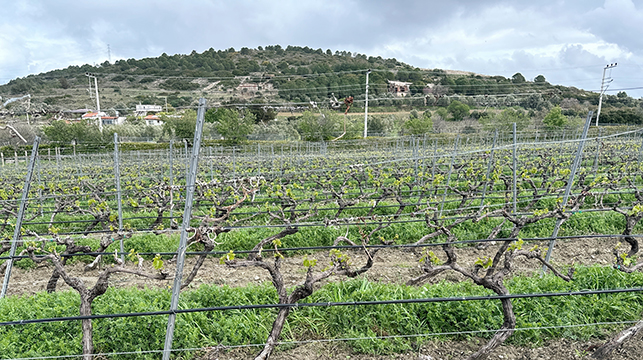 Most people don't know that Turkey is one of the largest grape growing regions in the world.
Most people don't know that Turkey is one of the largest grape growing regions in the world.
Yes. In terms of grape viticulture, in terms of grape production, actually people don't realize this, but Turkey ranks high in the scale of grape production in the world. If I'm not mistaken, it's in the top five in terms of total production. But most of this production is table grapes. In the case of table grapes, it could be the first or the second in terms of production.
So I mean, our table grapes are always at home, in restaurants here, and always our meals end up with fruits and grapes are one of the main fruits that end up on our table. So there is a huge grape industry in Turkey and because of that there's a huge viticulture expertise.
It's interesting that with farmers, people in rural lands, colleges, there's a lot of focus on grapes but again, like many other things in Turkey, there isn't that concentrated effort, There isn't a focused effort, there isn't a collaboration.
Everybody wants to do their own thing and create their own miracle. Instead, everybody needs to get together and create one miracle. And that is the place of Turkey in the worldwide viticulture and wine map. Really, we have to put a big blimp on that map of wine in Turkey, in the world.














